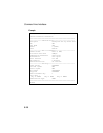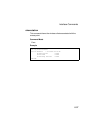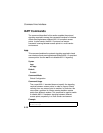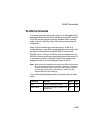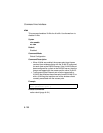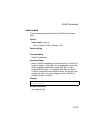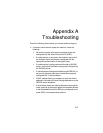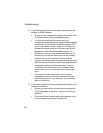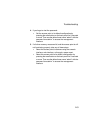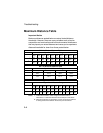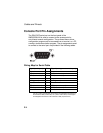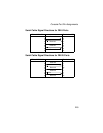
Troubleshooting
A-2
2. If the access point cannot be configured using Telnet, a web
browser, or SNMP software:
• Be sure to have configured the access point with a valid
IP address, subnet mask and default gateway.
• If VLANs are enabled on the access point, the
management station should be configured to send tagged
frames with a VLAN ID that matches the access point’s
native VLAN (default VLAN 1, page 5-19). However, to
manage the access point from a wireless client, the AP
Management Filter should be disabled (page 5-19).
• Check that you have a valid network connection to the
access point and that the Ethernet port or the wireless
interface that you are using has not been disabled.
• If you are connecting to the access point through the wired
Ethernet interface, check the network cabling between the
management station and the access point. If you are
connecting to the access point from a wireless client,
ensure that you have a valid connection to the access
point.
• If you cannot connect using Telnet, you may have
exceeded the maximum number of concurrent Telnet
sessions permitted (i.e, four sessions). Try connecting
again at a later time.
3. If you cannot access the on-board configuration program via a
serial port connection:
• Be sure you have set the terminal emulator program to
VT100 compatible, 8 data bits, 1 stop bit, no parity and
9600 bps.
• Check that the null-modem serial cable conforms to the
pin-out connections provided in Appendix B.



